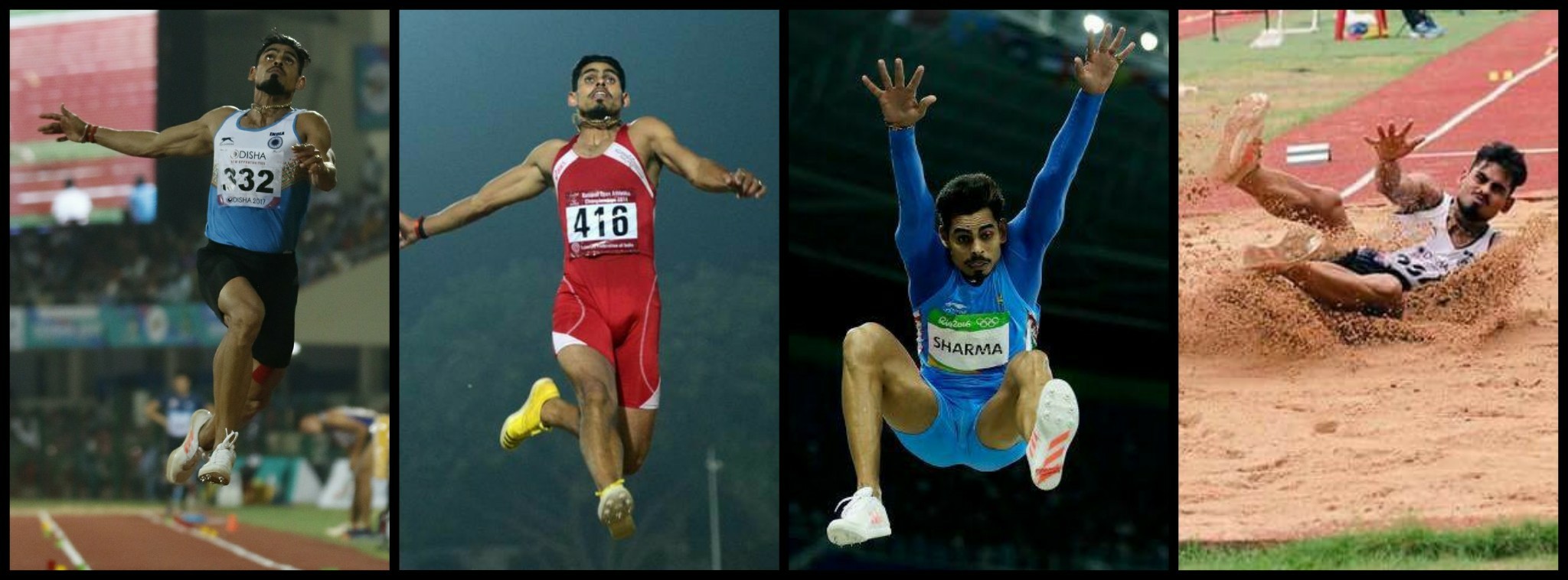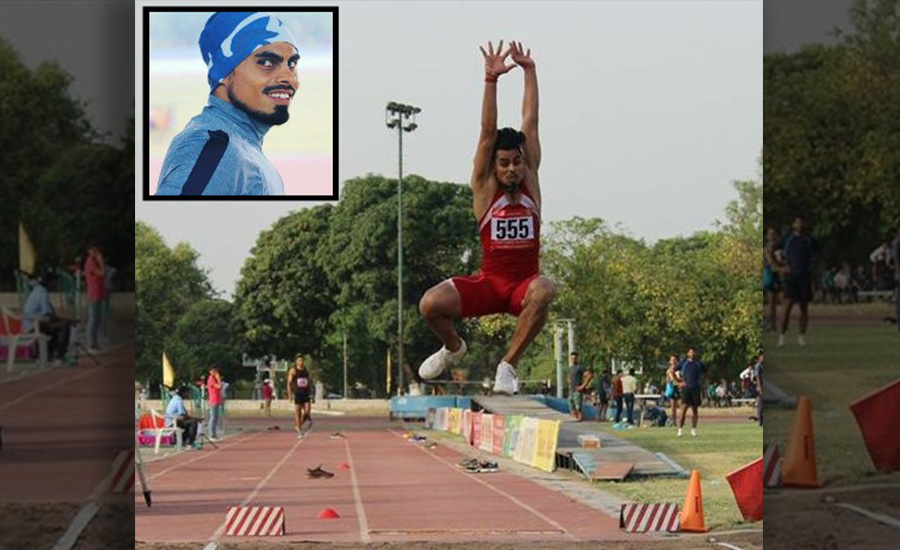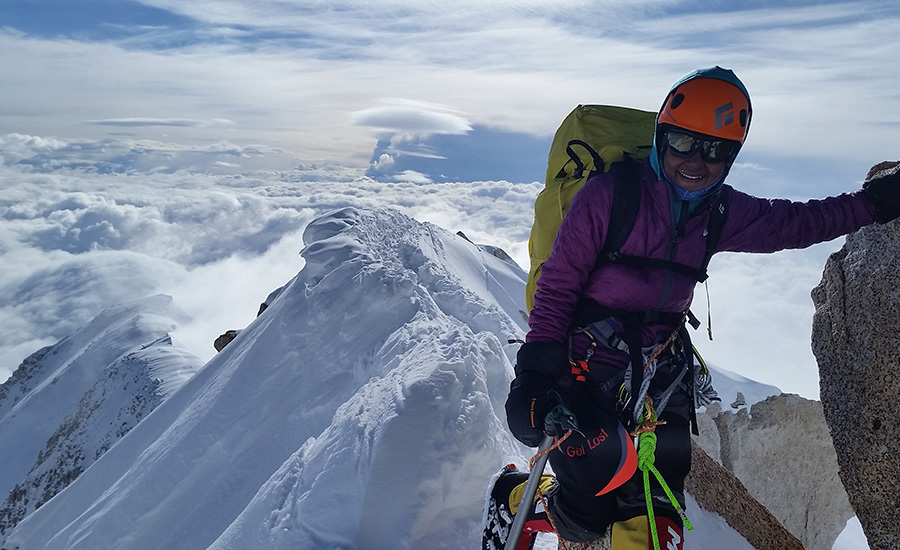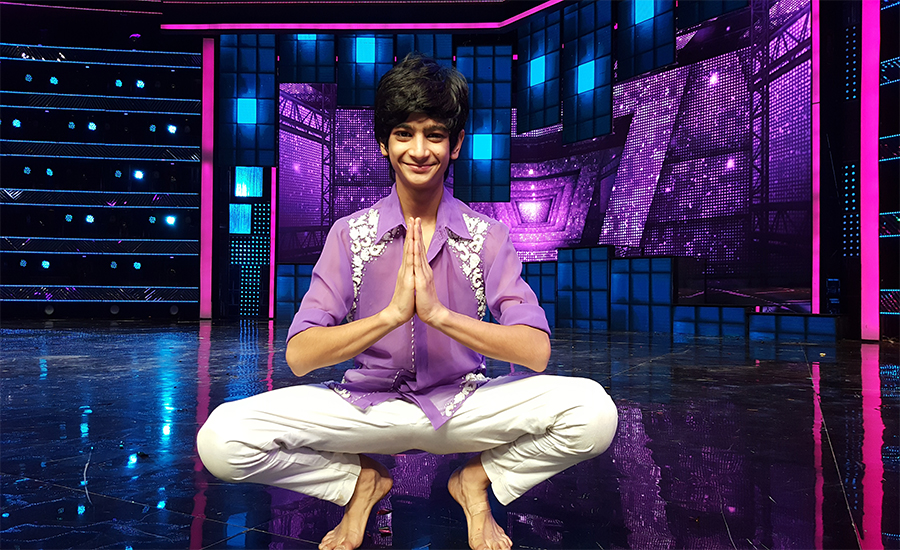

Jumping through sheer success – Olympian Ankit Sharma
Known As
Ankit Sharma
Mother's Name
Mithlesh Sharma
Father's Name
Harnath Sharma
Birthday
20th July 1992
Place from
Morena, Madhya Pradesh
Proudly says ‘imd1’ for
Long Jump, Sport
Someone who crossed the 6-meter mark in long jump at the age of just 13, Ankit was India’s only athlete in the Men’s Long Jump event at 2016 Rio Olympics. Hailing from a small town, Morena in Madhya Pradesh, he is an inspiration to all those who aspire to pursue athletics in the near future. Read through the interview as he mentions the hardships he faced and the way he overcame them in the field of athletics.
We are really keen to know, how did your journey begin?
While I was in my village, I tried participating in each and every sport event that took place in my school. They included ‘under 15’ volleyball, ‘under 16’ volleyball, and even cricket. Thus, the first stepping stone in my journey of sports was through school. Various people started to support me since then. Even though we were not financially strong, my father always encouraged my talent. In 2005, I represented my school in the national level games that took place in Pune and secured the 4th place in them. In 2006, the Sports Authority of India selected me for the ‘under 18 category’ from Bhopal division because I had cleared the mark of 6 meters at the age of 13 in long jump. My coach, Mr. Surinder Pal helped me develop my skills there. This is when I started focusing just on long jump. I used to participate in javelin before but, wasn’t too good for the national level – all I could win was the state level prizes. I’d say from 2006 onwards, I started living the professional life of a long jumper. My coach identified my talent in the sport and told me to keep it as my main event. Other than long jump, I also participated in triple jump, hurdle frames and won quite a few medals in them – some of them at the national level too.
What were the hardships / hurdles your encountered and the way you overcame in your journey?
I was told in a short notice of just four days that I was selected for the international level. I didn’t even have a passport at that time. Eventually, I couldn’t participate that year. When India was the host of the Commonwealth Youth Games in 2008, it was all going quite smooth. I won a lot of medals but, eventually I started to face a real hard time with my team. I was taken out of the team due to some game politics. Probably the seniors couldn’t see a successful beginner with them. I was pushed down from my ladder of success. It changed the way I used to think. I decided to leave sports as a career and was inclined towards joining the army. But, my couch didn’t let me leave. He called me back, motivated me and made sure he set targets for me. Then, I participated in various competitions to achieve those targets. My couch went around telling everyone that someday I will represent our nation in the Olympics. His statements encouraged me to pursue this goal and I was back on track again. Then, I decided to participate in the 2012 Olympics. However, it wasn’t possible. Finally, in 2016, I got my chance. Such struggles decide our success.
Beyond Athletics
Quote for Life
“Karo Ya Maro” it means, you should do something in your life which adds pride to your name so that you’re remembered by your work even after death.
Favorite Personalities
Sachin Tendulkar and Amitabh Bachchan
Inspiration
Mr. Prem Kumar
Food I Love
Kadhi Chawal and Aloo Ke Parathe
Food I Hate
Non-Vegetarian
Had I not been an Athlete then…
A Cricketer
Like Vacations at
Haridwar and North India
Favorite Past time
Listening to music and motivating my juniors
Favorite Dialogue
Karo Nahi Toh Maro
Favorite Movies/Series
Pele, Mary Kom, Bhaag Milkha Bhaag
Favorite Actor/Actress
Akshay Kumar and Annabelle Khan

Success is incomplete without its share of failures. How should one overcome them to move on?
My biggest failure for me was Rio Olympics. Be it the pressure of performance or my own inability, I couldn’t reconcile to the reality of bad performance at my own sport. I terribly ruined my third jump. I couldn’t perform enough to reach the finals and secured only a lower rank. I felt ashamed of not being able to win the gold. I just couldn’t bear the negative remarks that were thrown at me by the public. The only person who has been in a similar environment before can only understand how difficult it is to cope through such a stage. I was performing quite well in my trainings and competitions, but fate also has a role to play on the big stage. My strategies didn’t work in my favor and so my performance fell.
Do you think Athletics and its learning’s can be helpful in life even if one does not want to consider it as a career goal?
If it is not taken as a career goal, even then it’s important, because if you want to live longer it’s very necessary to stay fit by running or exercising. Your body will be strong, and you can stay active and can perform all kinds of work in better manner. Healthy body will help your mind to work effectively and keep you away from diseases and any sort of muscle or bone weakness.
Who has been your influencer in this journey & how?
My brother and my coach have always been my greatest supporters. And not to forget, the people from the federation have really troubled me in this journey.
Which was “that” moment when you consider yourself as “I Am The 1”?
I don’t think there was one specific moment like that because the graph of an athlete’s life is varying. One day I’ll be performing at the top of my sport, the other day someone else will take my spot. Competition keeps the sport alive and interesting. I never felt like I’ve become a very big player or hero or something. But yes, I do feel that I am one athlete who can bring medals for the country, and my events have the scope of international level. Keeping this only in mind, I am working hard, so that I can achieve success for the country and make it proud. I was overwhelmed when I qualified for the Olympics. People appreciated me and said that nobody has ever qualified for it. That was the time I felt as “I Am The 1”
Did you get any formal training and how was that journey?
School and college weren’t interesting, because in 2008, I started going for the national level, so I hardly attended school and colleges. I just went to give the exams in college. The training in long jump was quite firm, but because my seniors were really supportive, it all felt like a family. They really cared for me and directed me to the right path. Their support is a major reason for making me whoever I am today in front of you. I started the training from the SAI center in Bhopal in the year 2006.
Could you reflect on the importance of systematic training in Athletics?
Systematic training is very important as it highlights what exactly needs to be done. After knowing the analysis of our performance, we work upon our practice accordingly and thus, do the related and required exercise. Without systematic training there is no purpose of just running and running endlessly. What is to be developed according to your capability and how it is to be developed is instructed by the coach and that is systematic training. Only a coach can understand how to make a sportsman ready for the field. He is the only one who can provide systematic training.
What are the pre-coaching essentials e.g. Right age, mindset or any other?
For long jump coaching, two things are very important - speed of the runner and his body’s muscular reactions. The one who has speed can improve in future for long jump, triple jump, etc.
Technology and scientific training has been changing the way people get trained in Athletics. What’s your take?
Technology is improving very rapidly in the field of athletics. In foreign countries, biotech tests are conducted to check food consumption and lengths of the player to reduce fowls and become a perfect long jumper. There is a regressive check on their running movement. Up down of the knees and reflexivity of each muscle are other important parameters to know about the athlete’s performance. For example, if the video camera is shooting every performance of the player, we can easily rewind and play again and see the movement of player again and again. It’s very important in today’s era. Also, a player should himself know what mistake he is committing. There are times when the coach cannot understand the flaw in the performance.
How can one select an ideal ‘Guru’ for getting formal training for Athletics?
The most important thing a shishya needs to have in the guru is trust. If there’s no trust between the guru and shishya, success is very far-sighted. A player should have faith in his trainer. He ought to believe in his methods of instruction and believe them to be the best. Every step that a coach takes for the player is for the betterment of the player. Whatever, your coach says is to be done, needs to be done without fail. Listen to nobody else than your coach. It’s just like - only your mother knows which spices are to be put in a dish. To select the best coach, his achievements can be considered. The number of successful players he has trained in the past can also be an important parameter. My hard work totally depended on my coach, the one who trained me in the very beginning and helped me in qualifying for the international level. His training, his concern, his guidance and his motivation made me understand everything in my career.
What according to you, can be a scope for improvement in training for Athletics in India?
For high and better training in India, we can use places like Ooty and use the SAI or army centers already constructed there. The training done in Southern part of India is quite important and significant because the season there is usually constant, and it prevents injury. There’s a lot of scope of improvement, even if one organization decides to improve the current state of training in India and reform the system a little bit, the training can develop to a whole new level. If I get some support to reform my mistakes, especially psychological support which is my weak point, then my long jump measure can increase to a higher level.
What do you suggest for better accessibility of Athletics in remote parts of India?
For that, small events and competitions should be constantly conducted to make them understand what exactly the sport is like and what its benefits are. Every person today has the tension of job and money on his mind. Even sports players come with this intention that they’ll play for some time and then do a stable job. This perception has to be changed which can be done through conducting small events and keeping small prizes for the same and thus, motivating them and guiding them in handling the legal side of it so that the negativity in their minds towards sports can be eliminated. You see in other countries, there are often street events and indoor events in malls take place there. Children keep participating to win small prize money. This ultimately attracts the children to join this field and take it seriously.
Your piece of advice to parents and new generation especially when some people are skeptical about career in extra curriculum.
Well, I believe the amount of career in sports is more than that in studies in today’s world. It’s not like I am saying one should not study. Even a sportsman needs to study. In fact, the smarter he is the better and faster will he learn the techniques and movements. It will all result in good achievements. But, sports also provide you with good jobs. It’s because of sports that I am an instructor today and may become a DSP in future. Whatever career I have today, is because of sports. If I can fight for my dreams and come here from a small village, then today’s generation has so many platforms like social media and internet to prove their worth to the world. We can connect with inspiring people, correct our mistakes through that and look for good academies and coaches, which we didn’t have a few years from now.
One thing which you feel you want to change from the past while you walk down memory lane…
I always felt the need for fair selection in the system. A poor man’s children work as hard as a rich man’s children to reach a certain level. At that point both of them are equal and should be treated fairly. The selection shouldn’t be biased towards the rich and politically involved people. Secondly, the selection trials should take place at the correct time. If the selection list is declared on time, the players can prepare themselves accordingly for their future competitions. This motivates the athlete more than anything else. I’d like to change the selection trials I was a part of. Throughout my life, I’ll allow an athlete to take training from wherever he wants, and the trial will be kept before the foundation. The first two athletes will be selected, and the others will be given merit.














